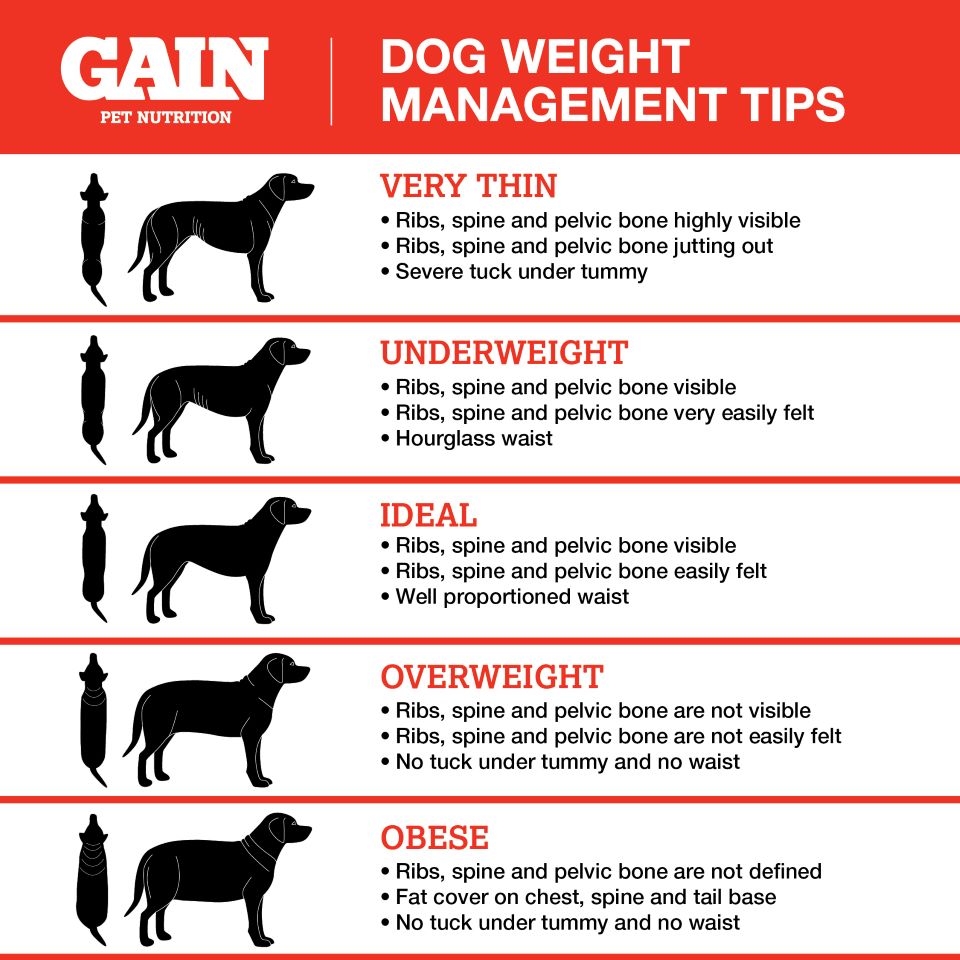Has your dog been getting to many treats and oversized portions lately? Managing your dog’s weight is extremely important when it comes to maintaining a healthy weight and lifestyle for your pet.
Research shows that two thirds of dogs are overweight and the role of nutrition plays a vital part in ensuring your dog stays healthy and their weight is managed. It is important that as owners you keep an eye on your dog’s weight and monitor the daily intake of food. A dog will 9 times out of 10 eat all of what you give them which puts the onus more on the owner to manage your pets weight.
The first step to managing your dog’s weight is knowing how much you are feeding him. Always measure his food at every meal. That way, you know how much to feed in order to reduce his intake. Keep track of snacks and treats, and reduce those too when your dog needs to go on a diet. Just like people, dogs lose weight by consuming fewer calories than they burn. Therefore, to lose weight, a dog needs to eat less and exercise more.
The health risks associated with obesity in dogs are very serious. They can include damage to joints and bones, heart disease, hypertension, difficulty breathing, decreased stamina, heat intolerance, decreased liver function, and decreased quality and length of life. You can check the following chart to see what bracket your dog falls into.

What is the ideal weight for my dog?
The graph above can help you in determining whether your dog is overweight or not however, there is no one ideal weight for all dogs. The optimum weight depends on your pet’s size and breed, and your vet can advise you on the ideal weight for your dog.
What causes weight gain?
Weight gain is generally caused by too many calories eaten and not enough used up. Older dogs that are less active – sometimes due to health issues like arthritis – are more likely to gain weight, and may need changes to their diet to reflect their lifestyle.
Certain breeds with tendencies to overeat, (golden retrievers, Labradors, basset hounds and Rottweilers) are prone to weight gain and may need regular monitoring of their weight to keep things under control.
8 Signs that might tell you your dog is overweight
- You need to loosen your dog’s collar
- You can no longer see your dog’s waist or feel their ribs
- Their tummy hangs down when they are standing
- They have trouble walking
- They move more slowly than they used to
- They regularly become short of breath, and pant more than they used to
- They have become bad tempered
- They sleep more than usual
Ask the Experts
Dogs’ weight can be a tricky one because no two dogs are the same; if you are worried, it is always worth contacting your vet. They will be able to determine whether your dog is overweight, and to offer the best dietary and exercise advice if they are.

